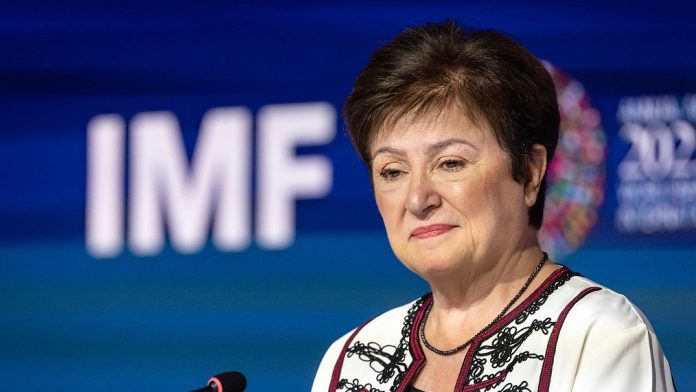In the realm of global economics, the advent of artificial intelligence (AI) has been likened to a force of nature, with the Managing Director of the International Monetary Fund (IMF), Kristalina Georgieva, describing its impact as akin to a tsunami. Speaking at an event organized by the Swiss Institute of International Studies, Georgieva warned that AI is poised to reshape the global labor market dramatically, affecting approximately 60% of jobs in advanced economies and 40% worldwide within the next two years.
The urgency of preparing for this seismic shift cannot be overstated, emphasized Georgieva. As AI technologies continue to advance rapidly, there is a critical need to ready both individuals and businesses for the transformative effects they will bring. While the potential for AI to drive significant increases in productivity is undeniable, Georgieva also highlighted the looming threats of misinformation and exacerbated societal inequality that may accompany its proliferation.
The World Economic Outlook, according to Georgieva, has become increasingly vulnerable to shocks in recent times, citing the COVID-19 pandemic of 2020 and ongoing geopolitical conflicts such as the war in Ukraine. Despite these challenges, she noted the remarkable resilience of the global economy, which has thus far managed to evade a widespread recession.
However, Georgieva cautioned that more shocks are likely on the horizon, particularly as the climate crisis intensifies. Amidst her remarks, she faced vocal protests from demonstrators advocating for more decisive action on climate change and debt relief for developing nations.
Adding his perspective to the discourse, Swiss National Bank Chairman Thomas Jordan addressed the issue of inflation, stating that Switzerland has made significant strides in its battle against rising prices. With inflation hovering at 1.4% in April, well within the SNB’s target range of 0-2% for the 11th consecutive month, Jordan expressed cautious optimism about the outlook for price stability in the coming years.
Nevertheless, he acknowledged the pervasive uncertainty surrounding economic forecasts, underscoring the need for continued vigilance and adaptation in the face of evolving circumstances.
In essence, the rise of artificial intelligence represents a double-edged sword for the global economy. While it holds the promise of unparalleled advancements in productivity and innovation, its unchecked proliferation threatens to exacerbate existing social disparities and introduce new challenges that demand proactive and collaborative solutions. As policymakers, businesses, and individuals navigate this rapidly evolving landscape, the imperative lies in harnessing the potential of AI while mitigating its adverse consequences, ensuring a more equitable and sustainable future for all.


